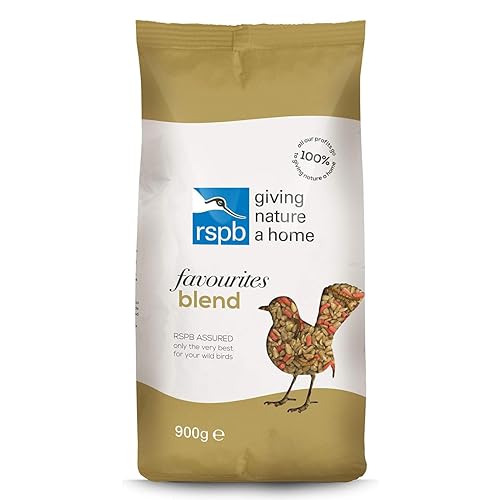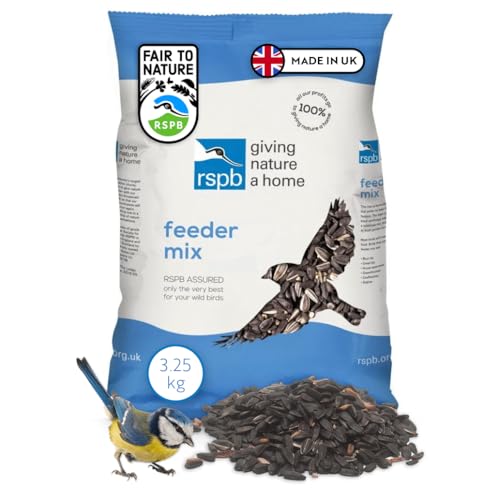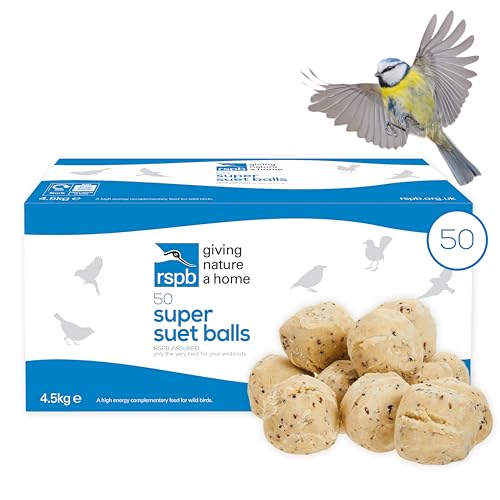What and when to feed birds in a garden — wildlife experts reveal the best types of food to give them a helping hand
Welcome more birds into your garden this year
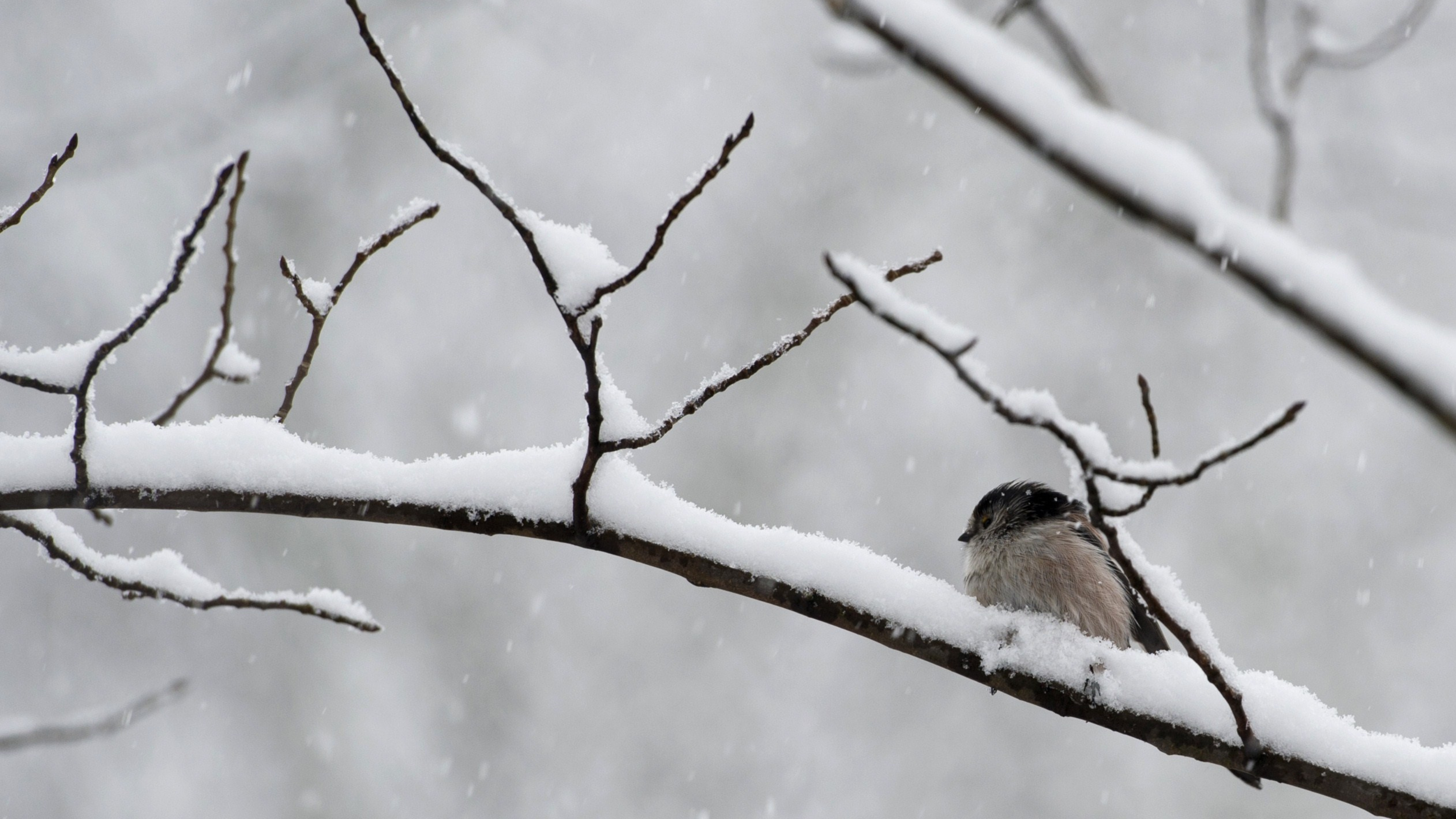
One of the great joys of having a garden is to get winged visitors dropping by. Birds are not only pleasant company, but also play an important part in maintaining a healthy garden ecosystem, so encouraging more birds to your garden is positive all-round.
The best way to attract more feathered friends to your garden is to leave out supplementary feed for them. This is especially important during the times of the year when birds’ usual diet is harder to come by in nature, meaning they really appreciate an extra helping hand.
But it’s not always clear what to feed birds, or even when to leave food out. Just like humans, birds need a good mix of nutrients, as well as a balance of proteins, fats and carbohydrates to stay healthy and warm, especially during the winter months. So understanding what bird feed to use and when to feed birds is crucial to keep attracting birds to your garden.
When to put bird feed out
While birds require feeding year-round, there are certain times of the year when supplementary feeding is most useful to them. ‘Without a doubt winter is the time of year that birds need feeding the most, as their usual food sources, such as soft fruits, berries, and insects, are far more scarce,’ says James Ewens, Commercial Director of Green Feathers. Leaving food out for birds during the colder months until around April is the best way to help prepare them for spring, along with carrying out any winter bird box care.
The availability of naturally occurring bird food also depends on the type of area you live in. ‘In urban areas, it may be wise to feed longer, possibly all year round – it simply depends on the availability of natural food sources,’ says Dick Woods, founder of Finches Friend.
What to feed birds
The type of food which birds need the most will depend on the time of year. ‘High calorie food is beneficial to birds across autumn and winter, whilst high protein options are most useful during spring and summer,’ says Katie Nethercoat, wildlife advisor for the RSPB.
You can consistently use one type of bird feed throughout the year, so long as it contains a good mix of the nutrients and proteins which birds will need. But alongside regular seed mix, there are a range of foods you can additionally leave out to help birds thrive.
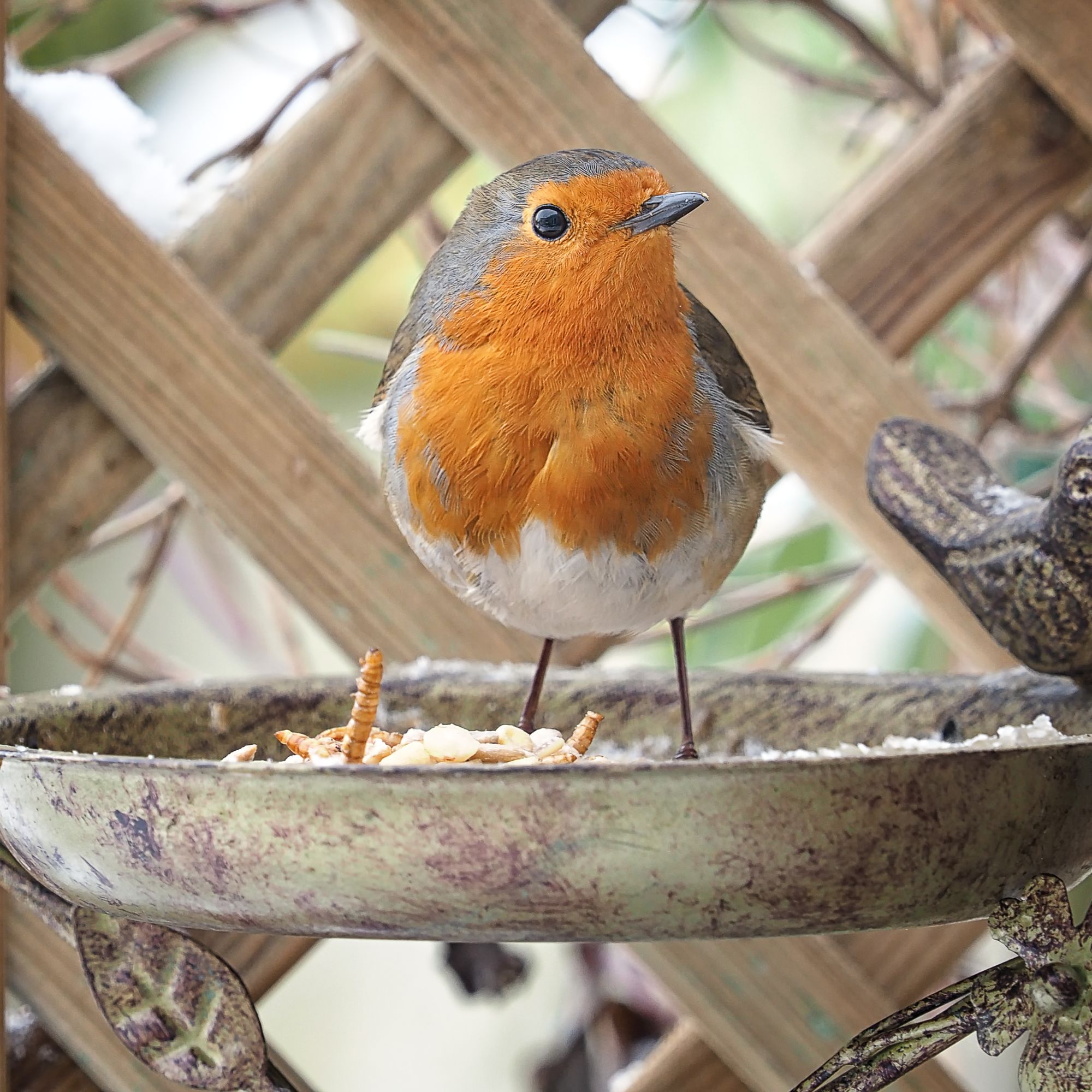
The food you provide will also attract different species to your garden. ‘Goldfinches, for example, love Nyjer seed, House Sparrows and Dunnocks will take small seeds like millet, whilst oil rich seeds like Sunflower hearts are enjoyed by most garden birds,’ adds Katie.
Whichever feed you choose to put out, it is important to not leave bird feed out in extremes of hot, wet, or cold weather, as it will spoil, and to not allow the bird feed to get wet.
1. Seeds
Most bird seed blends available on the market will contain a good mix of nutrients which birds need throughout the year. ‘Check to see if the ingredients include things like sunflower seeds, oats, and sometimes even crushed peanuts,’ advises James.
Sunflower seeds and oats are both rich in the oils which garden birds require, while peanuts bring good amounts of fat to their diet.
2. Suet or fat balls
In colder months, when birds expend extra energy keeping warm, leaving out suet or fat balls is a good way to supplement the energy they’re losing. Suet balls are balls of fat with some grains and seeds mixed. According to James, ‘if there’s one thing birds need over winter, it’s fat. Not only does it give them a reserve of energy to draw from, but it also helps to keep them a bit more insulated during the cold winter nights.’
However, it’s not advised to leave suet balls out during summer, as they tend to melt and attract pests before the birds can get to them.

3. Sunflower hearts
While pre-made bird seed blends are the most convenient option, birds can be picky eaters, leaving much of the mix discarded on the ground. One way to avoid this is selecting one type of crowd-pleasing, nutritionally dense seed. ‘I feed Sunflower Hearts,’ says Dick. ‘All small birds will eat them, and they are highly nutritious.’
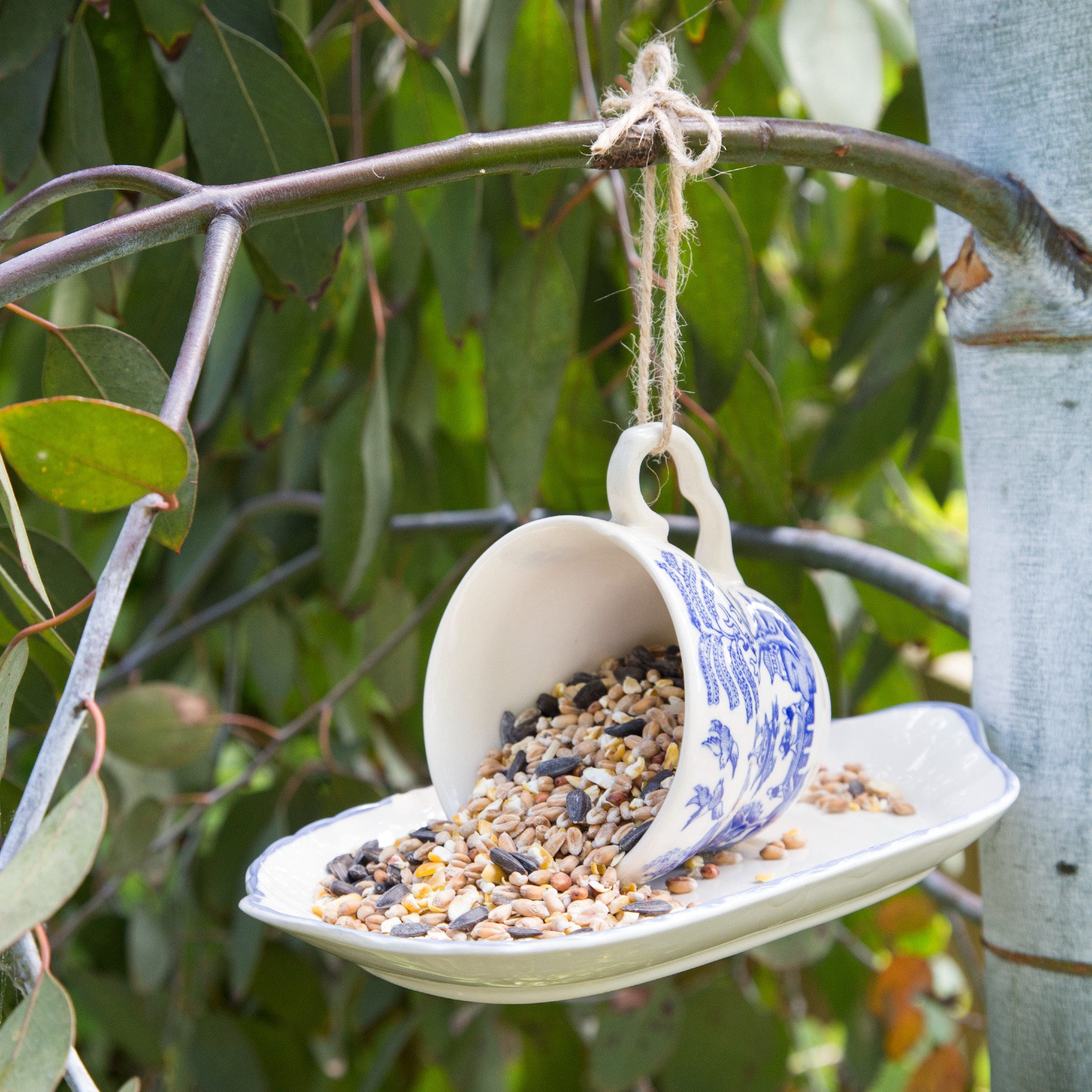
4. Mealworms
Mealworms are an excellent protein source for birds to have year-round. If your seed mix doesn’t contain mealworms, try crushing some up and adding them to it, or you can scatter them on the ground in small amounts. ‘Soaking the mealworms in water can make them easier for chicks to digest,’ says Katie.
5. Peanuts
Peanuts are a good energy source for birds, but be mindful to choose a bird feeder that doesn’t allow large chunks to come out, as this can be a choking hazard for birds.
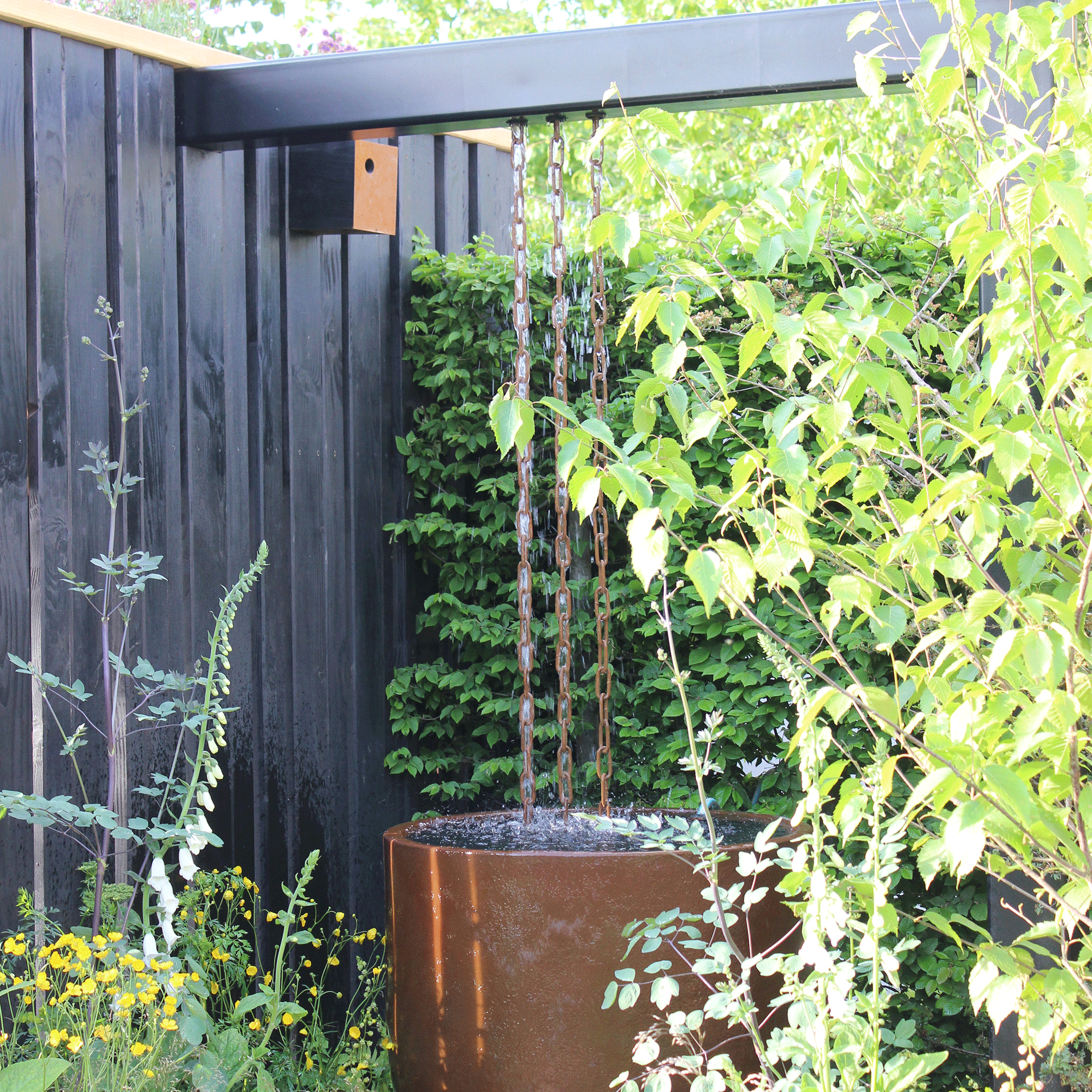
6. Kitchen food scraps
If you have any food scraps after cooking, leaving these out for birds can be a good way to also reduce food waste. ‘Plain cooked pasta and rice can provide birds with a good source of carbohydrates,’ says James. Boiled or mashed potatoes are good for the same reasons, but it’s important to make sure there are no spices or seasoning on any leftovers you leave out for birds.
Buy bird feed
How to feed birds
The type of bird feeder you use will depend on which food you choose to leave out. For example, using mesh feeders for peanuts will stop large chunks of food coming out, preventing the choking hazard peanuts can pose, while the RSPB recommends using hanging feeders.
One of the most important things to remember is to clean your bird feeder on a weekly basis to stop the spread of diseases and infections which are common among garden birds. Katie Nethercoat, wildlife advisor for the RSPB, gives the following guidance on how to clean your bird feeder
- ‘Brush off debris every time you put out fresh food and clean the feeders weekly by using rubber gloves, with hot soapy water or with a mild disinfectant solution and rinsing with cold water.
- Rotate positions of feeders in the garden to avoid build-up of contamination in any one area.
- Feeders should ideally be cleaned outside and allowed to dry completely before refilling.
- Water containers should be rinsed out daily, especially during the warmer months, and allowed to dry out before fresh water is added. They should be disinfected and thoroughly cleaned weekly.’
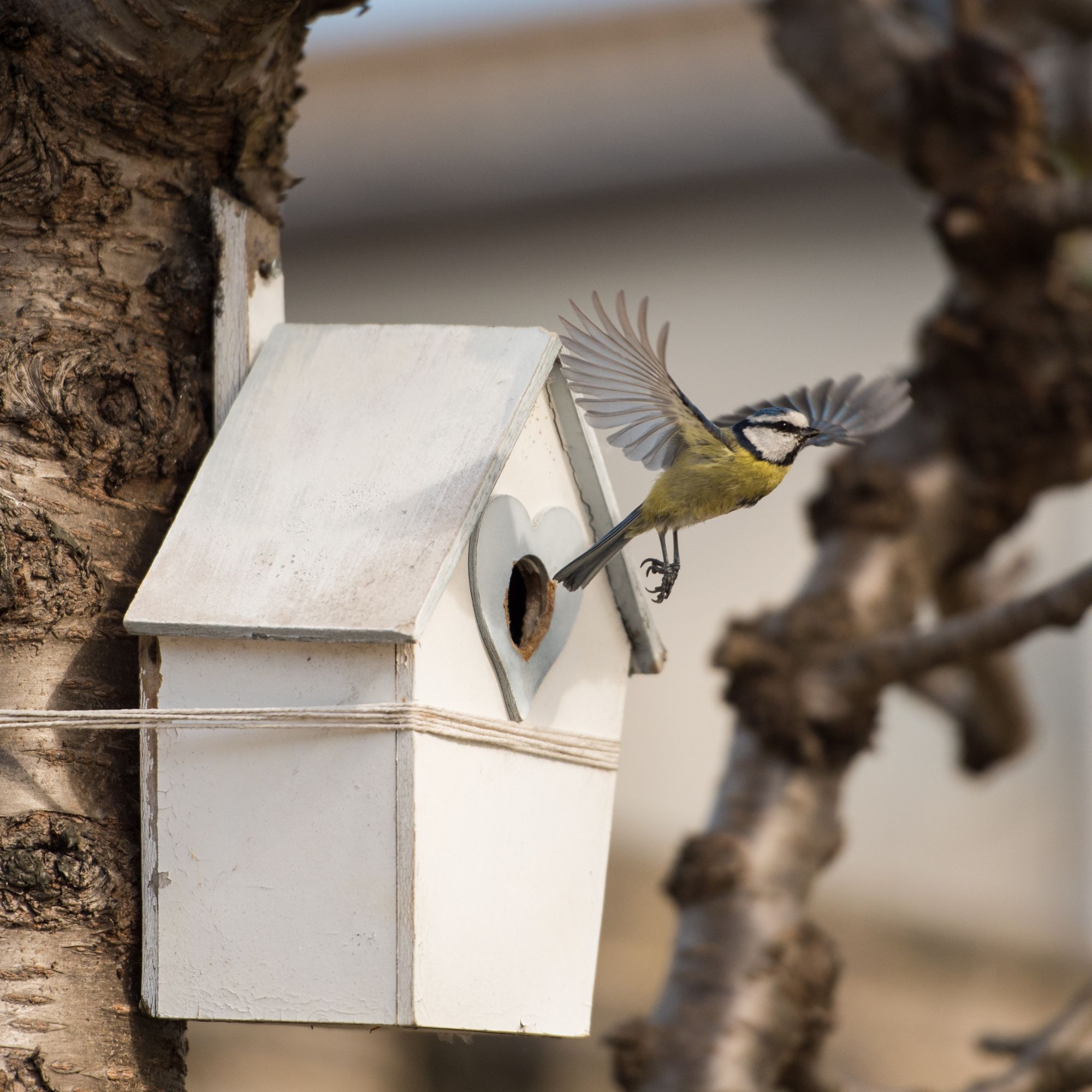
Where to position your bird feeder
Leaving bird feed out can also attract some unintended guests to your garden. Squirrels, rats and cats also love to snack from bird feeders, so there are a few factors to bear in mind when choosing where to place your bird feed. It’s important to put the bird feeder somewhere that’s accessible to birds, but also out of arms’ reach for unwanted dinner guests. Katie recommends hanging your feeders at least 2 metres away from dense vegetation, ‘and moving the position of your feeders regularly is recommended in order to avoid food being available in the same spot.’
Birds also like to take shelter after eating, ‘so it’s recommended that you put your feeder close to trees or shrubs, or your very own bird box, that they can return to after they’ve had their fill,’ adds James Ewens, Commercial Director of Green Feathers.
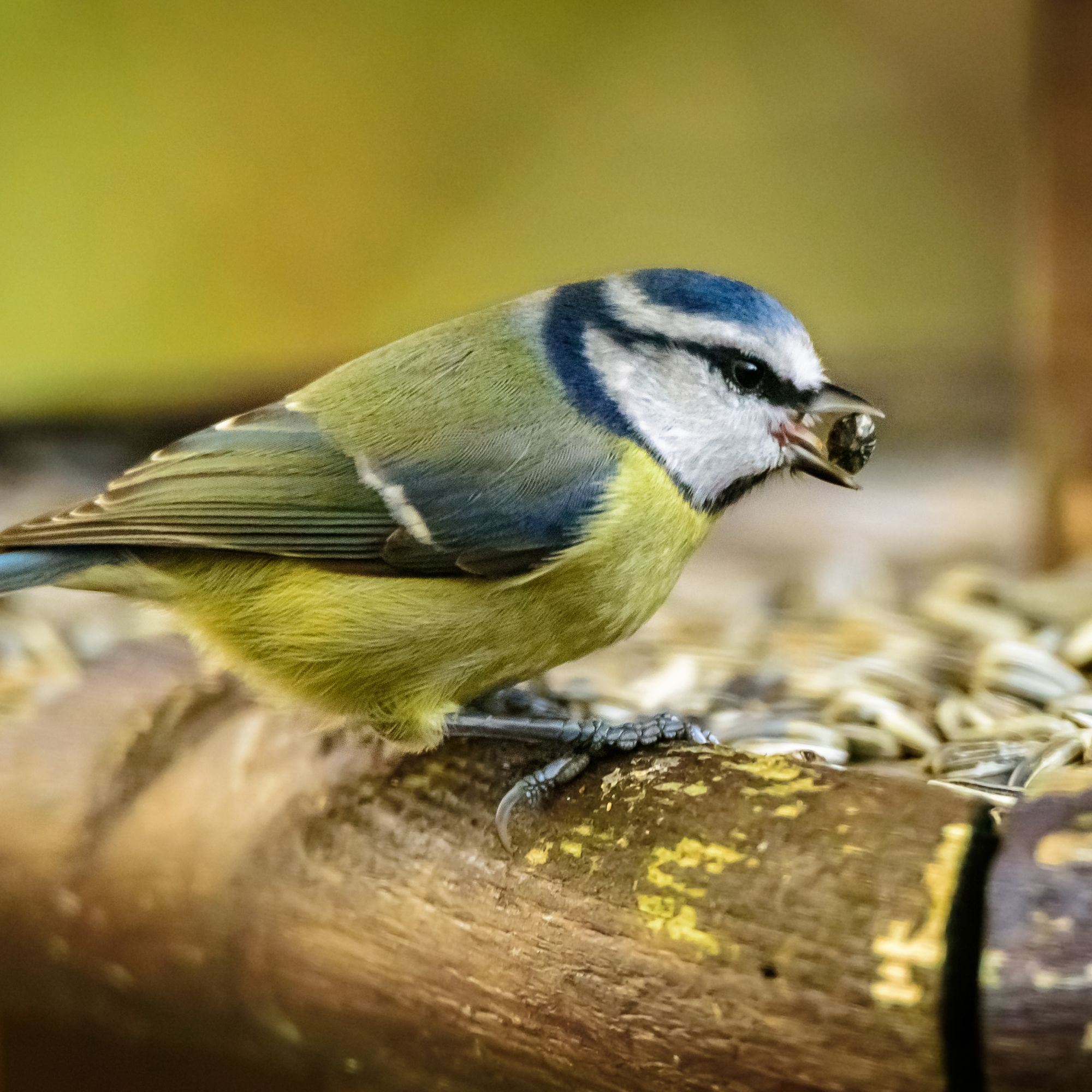
FAQs
What months should you feed birds?
You should start feeding birds when it starts getting colder, around November, or earlier if the weather is particularly bad. You can feed birds year-round, but around April and May is when supplementary feeding becomes less useful for birds.
When should you not feed the birds?
‘If you’ve observed a bird which looks sick, stop feeding for a minimum of 2-4 weeks and report this sighting to the Garden Wildlife Health organisation (GWH) for guidance,’ advises Katie Nethercoat, wildlife advisor for the RSPB. Once you stop seeing birds with any signs of disease, you can resume feeding.
What will you be leaving out for your garden birds?
Get the Ideal Home Newsletter
Sign up to our newsletter for style and decor inspiration, house makeovers, project advice and more.
You must confirm your public display name before commenting
Please logout and then login again, you will then be prompted to enter your display name.
-
 Should your front door colour match your hallway? Interior experts reveal 3 reasons why it should (and 3 reasons it shouldn't)
Should your front door colour match your hallway? Interior experts reveal 3 reasons why it should (and 3 reasons it shouldn't)Are you team matching or contrasting?
By Ellis Cochrane
-
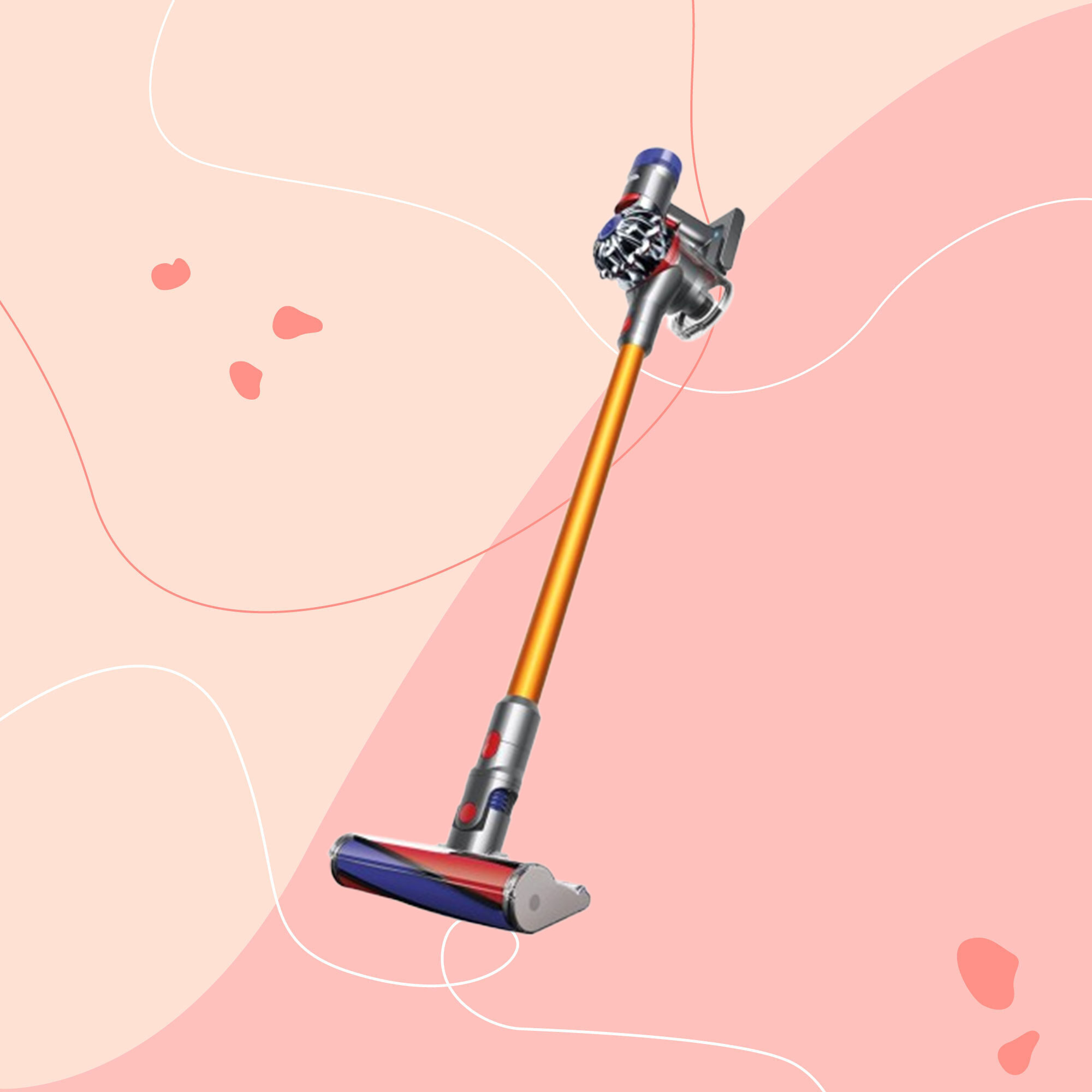 This £200 limited-time discount makes this Dyson vacuum cheaper than I’ve ever seen it - run don’t walk to Argos for this bargain
This £200 limited-time discount makes this Dyson vacuum cheaper than I’ve ever seen it - run don’t walk to Argos for this bargainIt's the most affordable Dyson on the market right now
By Lauren Bradbury
-
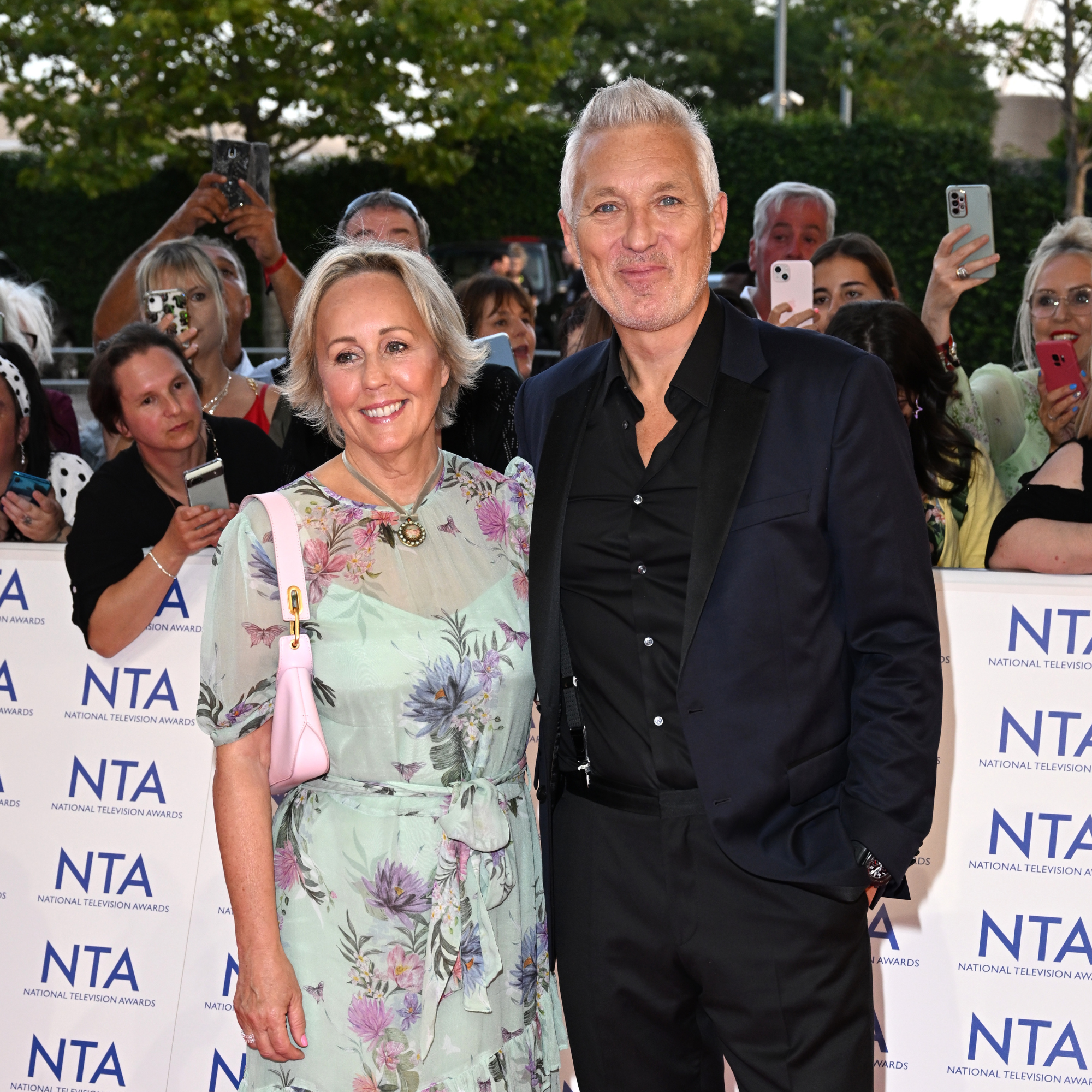 Martin and Shirlie Kemp’s pastel flower beds has given their Victorian renovation a romantic look - how you can get the look
Martin and Shirlie Kemp’s pastel flower beds has given their Victorian renovation a romantic look - how you can get the lookTheir pastel garden is the cottage garden inspo you've been looking for
By Kezia Reynolds
